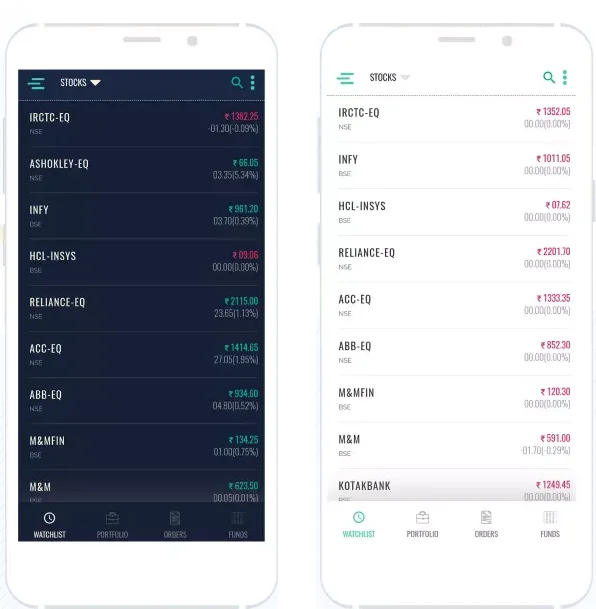How to Apply for IPO?
Jan 28 2022 6 Min Read

Every year companies make a beeline to the market regulator the Securities Exchange Board of India (SEBI) to clear their proposal to raise money through the public and get listed in the secondary market.
In order to raise money, private limited companies first have to get converted to public limited ones and then with the help of merchant bankers meet all the guidelines set by SEBI.
The company then prepares a Draft Red Herring Prospectus (DRHP) and submits it to the market regulator for approval. Since the DRHP is available on SEBI’s website, anyone can download it and research the company.
Meanwhile, SEBI, at its end checks the prospectus and if found satisfactory gives the approval for the company to raise funds from the public.
The company meanwhile goes on a roadshow, meeting key investors, institutions, and broking firms who through their clients will help the issue to get subscribed.
Why should you apply for an IPO?
IPOs are double-edged swords. Since the company planning to raise funds was not being reported upon or had analysts covering them, an investor is unaware of its pedigree. The management style or capability gets morphed easily in the DRHP it is not easy to judge a company. Not every investment in IPOs will be profitable.
Having said that, IPOs are also the best time to invest in a company, provided the company is good. A good company generally has a lot of investors’ interest and the issues are oversubscribed. These companies normally list at a premium and may never come down to the price at which the shares were offered in the IPO. Thus applying for the IPO makes sense as even if the investor gets part subscription, it would be at the lowest possible price. In a bad market, the market price of the stock may go below the IPO price, but if we are in a good market, the IPO price is rarely touched.
To summarise:
- IPOs are a double-edged sword as the company has no history in the market and public, thus the risk is high. One should do a thorough research of the company and not get carried away by the oversubscription levels and hype around the issue.
- In case of a good IPO, the price offered could very well be the lowest price the company may see. Applying for such IPOs and getting even a fraction of the shares applied will help reduce the cost of acquisition of such companies.
Prerequisites for applying for an IPO
The following accounts are required for applying for investing in IPOs and trading them in secondary market:
1. Demat account- This is essential for storing shares in an electronic format and is mandatory for investing in an IPO.
2. Bank account- This is required for making payment for the applied shares which is done through the ASBA facility. Application Supported by Blocked Documents (ASBA) is an easy way to apply for IPOs. It blocks the funds in your account for the IPO and the amount is only taken out when the shares have been allotted. The account holder also gets the opportunity of earning interest on these funds. More importantly, SEBI has made the ASBA facility mandatory for IPO bidding.
3. Trading account- This is required for investing in an IPO online.
4. UPI ID – You can have a UPI id linked to your bank account or create one if required from your existing bank account or BHIM app.
Eligibility criteria for IPO application
Applying for an IPO has become way easier and can be done through a mobile. There are still some criterias to be met to be eligible for an IPO allotment. They are
- You must be an approved investor. Meaning the SEBI (Securities and Exchange Board of India must give an approval. As of now only four types of investors can invest – Qualified Institutional Buyer (QIB), Retail individual investors and employees and Non-Institutional Buyer (NII)
- You must have a demat and trading account with any recognized DP(Depository Participant) in India like TradeSmart.If you do not have then you can create one here in an instant.
- Have a Permanent Account Number (PAN)
- You demat account needs to be linked with the bank account
How to apply for IPO
There are three ways to apply for an IPO
- Through a broker like TradeSmart
- Through Internet Bank
- Offline or physically
How to apply for an IPO through a broker account
An account with a broker is a prerequisite for investing in an IPO. The investment can be done by following the below mentioned steps:
- Do your preliminary research and assess whether the IPO is worth investing in. Log in to your TradeSmart broker account with your email address and mobile phone number.
- Login to BOX and under the portfolio menu, select the ‘IPO’ option
- From the list of Current & Upcoming IPO’s, click on BID to participate in the IPO offer
- Enter your UPI ID.
- Please make sure the UPI ID is mapped to your personal bank account.
- The IPO application is liable to get rejected if the person who is applying is different from the one whose bank account is used to apply. Third person bank accounts are not accepted.
- Place your bid(s). Please note the below points.
- While placing the bids, only a quantity that is a multiple of the lot size is allowed.
- If you wish to apply at the cut-off price, simply click on the checkbox next to ‘Cutoff-price’. If you want to place a bid at a different price, you can do so by entering a price in the ‘Price’ field.
- Once you’ve completed all these steps, click on the checkbox to confirm that you have read the RHP and other documents.
- Click on Continue
- Accept mandate request on your UPI App:
- At the end of the day after submitting the IPO bid, you will receive an SMS from the exchange confirming your application. You may also check the status of your bid in My Applications tab.
Applying for an IPO through a Bank (offline)
· Visit the bank branch which offers facilities for making IPO investments.
· Fill in the ASBA application form by providing details such as bank account number, PAN number, demat details etc. Submit the duly filled in application form and collect the acknowledgement slip. Use the reference number on the acknowledgement slip to verify your ASBA status.
· Then submit an application to invest in the IPO of your choice and mention both the number of shares you want and the price acceptable to you. Also ensure that there are sufficient funds in your linked bank account.
· The bank first blocks the application amount in your account and then sends IPO applications to specified stock exchanges.
How to apply for IPO online
This facility is usually available under the net banking or e-services tab. As the ASBA facility shows all the live issues currently, it enables the investor to invest in Follow on Public Offers (FPOs) and IPOs. The following steps are used to apply for an IPO through the net banking facility of any bank.
· Log in to your net banking using username and password
· Go to the request tab on the left and scroll down to IPO/Rights Issue option.
· On the screen would be visible the list of IPOs and rights issue live. Click on ‘Apply’ in order to apply for the IPO you want
· The next step will require you to fill in some information such as your date of birth, the number of shares you want to bid for, bid price etc.
· Some details such as PAN card number, bank account number, nationality etc. are filled before-hand and cannot be altered. The information requested under Depository Details can be found in the Consolidated Account Statement. (CAS)
· The final step involves confirming the amount to be blocked from the account, confirming the requisite terms and conditions and submitting the IPO application.
Applying for IPO via UPI can also be done easily through the following steps:
· Select the IPO you want to invest in by logging in to your trading account.
· Enter the price at which you would like to bid for these shares.
· Provide UPI ID and complete your application form.
· As a final step, approve the block funds request on the UPI app.
Benefits of applying for an IPO online
- It saves time and you do not need to be physically present at the brokers office of bank
- The process is more seamless and convenient. It even picks up the details automatically from the database so you don’t have to fill the form from scratch.
- The amount set aside is still kept in your bank account till such time the allotment is confirmed and you can continue getting interest on that amount.
Ways in which you can increase your chances of getting an IPO allotment
- Apply with more than one demat account – you can apply for multiple demat accounts with different DPs. But when applying for more than one allotment for an IPO, you can only use one PAN number. One way is that you can get your family members or friends to apply for an IPO on your behalf to increase your chances.
- Bid at the cut-off price: Applying for the shares at the cut-off price increases your chances as it shows that you are comfortable paying that amount for buying the lot. For example, suppose there’s an IPO for a bid price of Rs. 200 per share. This is only to be done in cases where the company is fundamentally strong and the issue is oversubscribed.
- Approve the mandate request – A lot of new investors who apply for IPOs make this mistake. They just apply for the IPO through the brokers and end it there. Know that after applying, you receive a mandate request. You need to accept this request from your banking app or website and only then will the funds be kept aside and you will be considered for an allotment for the IPO.
Unlike the olden days where the process was cumbersome, time consuming and confusing, today with the help of technology the process of applying for IPOs has become seamless and easy. However, its the operational aspect that has become easier, for stock selection one will have to put in the hours to pick up a good company.
Frequently Asked Questions
It is mandatory to have a PAN card to apply for an IPO. Any mistake in filling the PAN details while applying can lead to cancellation of the application.
Public issues are kept open for a minimum of 3 working days and cannot be kept open for more than 10 working days. As far as the book-building issue is concerned the IPO remains open for 3-7 days and this can also be extended in cases of price band revision.
A trading account is not mandatory for applying for an IPO through the ASBA facility as trading accounts deal with buying and selling securities in the secondary market. A demat account however, is necessary for receiving a credit of the allotted shares.
The IPO goes through a bidding process at the stock exchange which is open from 10AM to 5PM when it is open to the public. Normally the banks do not take applications post that but this may differ bank to bank.
The IPO from a company’s point of view is a very complex process and depends on many factors.. If all goes smooth then it usually takes six to nine months for a company to complete its public debut.

